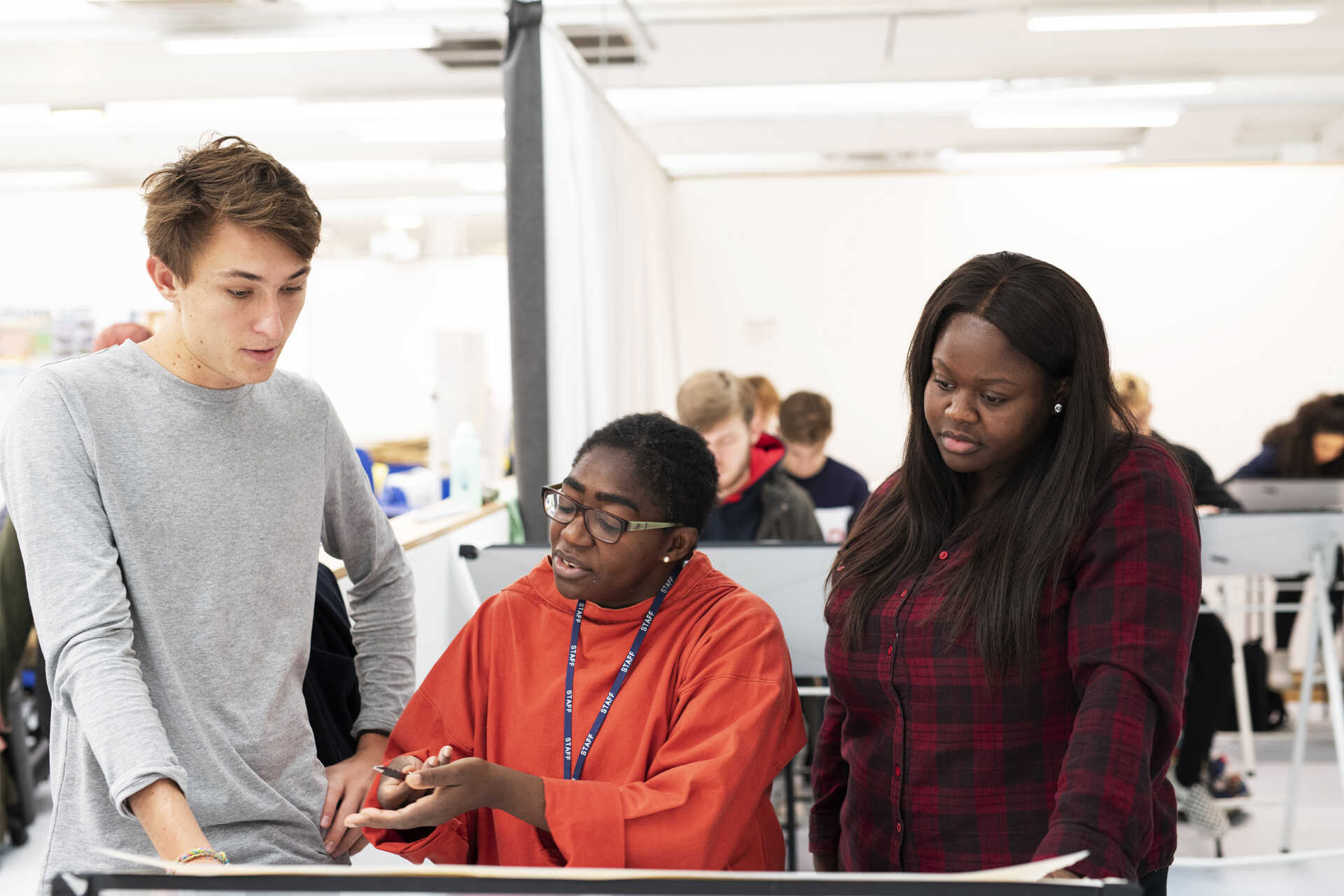What can I do with a degree in Graphic Design?

A degree in Graphic Design prepares you for a career in one of the most dynamic and creative industries in the world. Through hands-on experience and the development of visual communication skills, you'll build a portfolio ready for roles in design, advertising, branding, publishing, digital media, and more. Get ideas and inspiration here before booking a one-to-one appointment with a Careers Adviser.
Careers in Graphic Design
The following roles are an example of the types of job opportunities available to Graphic Design graduates, utilising your ability to think visually, solve design problems, and use digital tools.
Graphic Designer - Developing visual content for print and digital media including branding, brochures, packaging, and the web.
Digital Marketer - Creating content for the web, social media, and mobile applications using tools such as Adobe Creative Cloud and Figma to promote services and products creatively.
UX/UI Designer - Design and create intuitive and accessible user interfaces that are aesthetically appealing for apps and the web.
Advertising Art Director - Leading creative teams and setting the visual direction for campaigns, publications, or productions for clients.
Illustrator - Produce hand-drawn or digital artwork to communicate stories for books, adverts, branding, and editorial projects.
Motion Graphics Designer - Design animated visuals and graphics (such as opening titles) for videos, TV, film, and the web.
Alternative career paths
Creative Copywriter - Writing compelling content for adverts, campaigns, websites, and branding materials in collaboration with other creatives.
Web Designer - Combine graphic design aspects and front-end development/coding to build attractive and functional websites.
Content Creator/Social Media Manager - Producing original media content for online platforms, including YouTube, TikTok, Instagram, and podcasts and/or leading a social media strategy to boost visibility and customer/client engagement.
Design/Social Researcher - Conducting user and market research to inform design decisions and innovation.
Where do University of Kent graduates work?
This is a selection of organisations that have employed University of Kent graduates in the past. There are many more possible employers in these and other industries.
- n-fuze
- Ingenium Biometric Laboratories
- Hornby Hobbies
- Universal Music Publishing Group and Identity Music
- Vodafone
- ID&C
- We do marketing
- PoleStar
- Local and Regional Creative Agencies: Many graduates work in smaller independent agencies around Kent and Southeast England, handling branding, digital design, web design, and UX/UI projects.
- Publishing and Media Companies: Some graduates enter publishing houses and media companies for roles such as illustration, print design, and digital content creation.
- Freelance and Contract Work: Many Kent graduates build careers as freelancers or work with clients directly, often gaining experience in start-up environments or small to medium enterprises.
There are many more possible employers in these and other industries.

Find a job
The Careers and Employability Service provides information and advice on job searching to University of Kent students and recent graduates. This includes Uni Kent Careers Hub, advertising a range of graduate jobs, placement year and vacation work/internships.
Graphic Design recruitment platforms
Design Week Jobs (creative and design job opportunities)
The Dots (UK) (networking and job listings)
Tips to stand out
Portfolio creation: Develop a strong online portfolio showcasing your work on platforms like Behance or a personal website. Add this to your CV/LinkedIn profile. Showcase your understanding of typography, colour theory, branding, and accessibility.
Gain real-world experience: Add a Year in Industry to your degree, or gain experience through internships, student productions, or freelance projects to develop workplace and technical skills.
Network: Use LinkedIn and Kent’s Career Mentoring scheme to build connections with alumni and professionals to gain insights into your target roles and industries. Network and collaborate via platforms like The Dots and Creative Lives in Progress or LinkedIn groups.
Build commercial awareness: Stay updated with trends in digital storytelling and online content through newsletters, podcasts and following industry leaders and influencers. Engage with industry bodies such as BAFTA, BFI, and ScreenSkills.
Develop technical skills: Stay current with tools like Adobe Creative Cloud, Figma, and Canva. Learn and experiment with new industry required tools and platforms to showcase capabilities to prospective employers.
Competitions: Take part in student design competitions (e.g. D&AD New Blood)

Year in industry
A year in industry can have a big impact on your employability. By gaining real-world experience and learning key skills in the workplace, and pairing these with the knowledge you gain on your degree, you can become a highly employable candidate in the labour market. The year can be based in the UK or abroad, including your home country if you're an international student, and contribute to your final degree. At The University of Kent, many courses include an optional year in industry between your second and final year, where you undertake graduate-level work related to your studies.
Further study
Graduates may choose to pursue further education to specialise or transition into related areas. There are also sector-specific/technical courses that may be useful for career development.
Online Courses and Resources These platforms offer courses and tutorials useful for current students and recent graduates:
- LinkedIn Learning: Adobe Suite, design thinking, UX/UI
- Coursera: Fundamentals of Graphic Design (CalArts), Typography, Brand Strategy
- FutureLearn: Digital branding, creative thinking
- Canva Design School: Free tutorials for design fundamentals
- Skillshare: Logo and brand identity design (free trial available)
- ScreenSkills: Free UK courses on creative careers and portfolios
- Adobe Creative Cloud Tutorials: Tool-specific walkthroughs